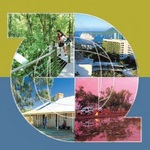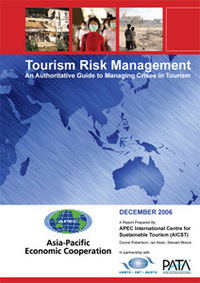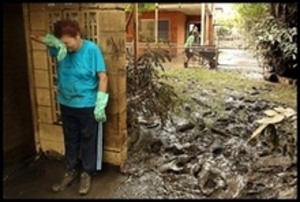Putting best practice marine management into place isn’t easy for tourism or fishery operators. A new resource from Sustainable Tourism aims to improve the situation. By Jeremy Torr
Sydney, Australia, 11 April 2011. In the wake of the recent epidemic of devastating floods, cyclones and radioactive leaks, coastal communities and tourism operators have been desperate to find ways that can help marine environments recover.

STO puts out a whole range of publications on sustainability in the tourism industry

STO portal editor Veda Dante is a long-time supporter of green issues
And while research and information is being done on the issue, finding it or putting it in an easy to access form has not – til now – been easy. There are currently hundreds of academic papers from leading universities, case studies and a wide range of practical fact sheets being produced all over the world. Locating them has been the hard part.
“Tourism-funded not-for-profit organisations such as the Banyan Tree Global Foundation and the Sandals Foundation are setting new benchmarks in marine conservation,” explained Veda Dante, portal editor for Sustainable Tourism Online (STO), a website dedicated to the dissemination of specialized knowledge on the subject. “Their partnering with universities and scientists to provide funding, facilities and field expertise helps foster an environment of sustainable management and learning.”
Luckily for searchers, Dante’s STO organisation has launched a special micro-website to help. The site contains the very latest research on topics such as assisted coral reef regeneration, marine turtle conservation, and managing potentially destructive environmental impacts; all current hot topics.

STO works with many partners to extend green awareness into the tourism space
The research papers are complemented by interviews with practitioners in the field and a special dedicated forum that allows users to connect and share knowledge. Both these make the site better and more intuitive to use when users need to locate highly specialised information that might otherwise not be easily accessible.
“Our Marine Management micro-site brings together for the first time a whole range of collective experiences, bolsters that with resources, tools and templates from environmental management leaders such as EarthCheck, and then presents it as a free resource,” says Dante.
Developed by Australia’s Sustainable Tourism Cooperative Research Centre (STCRC) to support sustainable policy, planning and practice in the sector, STO offers state-of-the art navigation and search functionality, access to tourism research and trusted sources of information relevant to the sustainable development of tourism now and into the future.

STO volunteer Beth Waters helps in a disaster cleanup at Fairfield, Australia
STO is convinced the new micro-site will be an essential and invaluable tool for cornerstone economies such as tourism and fisheries that have been devastated by recent events. It will add to the comprehensive online information already available on its three main sustainability themes on its site: Destinations and Communities, Business Operations and Parks, and Culture.
The addition of the new resource will, claims STO, offer extremely timely access to potential solutions as many locations and communities face what will undoubtedly be a long period of economic and environmental recovery.
Photos courtesy of STO, Rob Maccoll
Learn more at www.sustainabletourismonline.com